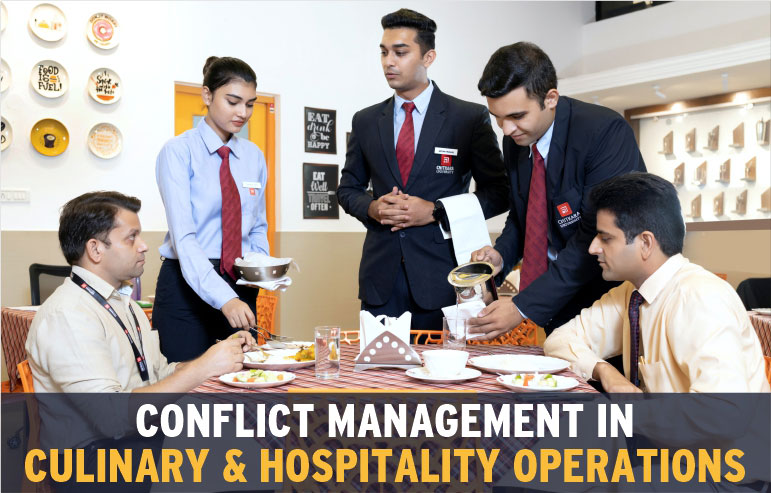Conflicts are common when there is a transaction between individuals — at workplace or within a family. On one hand conflicts of ideas/thoughts can be a catalyst to a healthy discussion leading to innovative conclusions, on the other, if these discussions are not managed in its correct perspective, it can lead to spoiling of relationships and a breakdown in the professional ecosystem.
“Whenever you’re in conflict with someone, there is one factor that can make the difference between damaging your relationship and deepening it. That factor is attitude.”
— William James
Also Read: Entrepreneurship In The Hospitality Sector
In the hospitality industry, whilst stepping up to satisfy a customers’ needs, conflicts of thought and opinions can happen among team members. However, it is crucial for everyone to understand the importance of being effective and discreet in managing a conflict. The ability to manage a conflict is an acquired skill that a professional develops over a period of time working in operations.
Conflicts occur for many reasons. Conflicts between a customer/guest and a team member of the service provider usually occur due to the inability of the service provider to fulfil a promise. Similarly, conflicts can happen among team members as well. Conflicts can be minimized by setting up well defined SOPs, deviation from which can be against approval from a competent person in the hierarchy. However, SOPs cannot always save the day. There can be complex scenarios where a fine balance needs to maintained between following the set rules and ensuring the customer is satisfied – it will be like walking a tightrope.
Also Read: Which Hotel Management College Has The Best Placement?
As noted by William James, an American psychologist, the attitude of the persons engaged in a discussion trying to manage conflict of ideas will be the key to arriving at an acceptable solution. The ability of a person to exhibit the right attitude to solve a conflict with another person, will depend upon the ability of that person to manage his/her own ego. On the contrary, when there is a dissatisfied guest in a hotel, you have a guest with a bruised ego. In this case you cannot expect the guest to exhibit the correct attitude. It will require an effective teamwork to pacify the guest. Each member of the team must look at the bigger picture and arrive at a common page, irrespective of the differences they may have amongst themselves and perception about the guest. Here the team members will have to exhibit the right attitude to arrive at a consensus. In addition, the skill to articulate your thought across to an individual or a group complement in managing conflicts, and to build this skill, the ability to converse in a language understood by the team is essential. This can be English or any local/regional language.
Also Read: The Best MBA Colleges In Punjab
Conflict of thoughts is a regular phenomenon at all levels and location, for conflict resolution each individual must adhere to the following to ensure effective management –
- Clarifying individual and group perceptions
- Focusing on both the individual and shared needs of the parties in conflict.
- Taking a positive approach toward conflict resolution
- Generating options for both parties
- Developing a list of actionable items
- Planning for mutual benefit
- Parting on good terms to ensure lasting conflict redressal
Also Read: The Future Of Hospitality In Changing Times
This is a brief on how conflicts can be handled. At Chitkara University, students pursuing culinary and hospitality programs are given opportunities to participate in simulated and real-life engagements to develop a foundational mindset to make impartial and positive evaluations of situations. Use of case studies, analysis and feedback play a critical role in this process.






